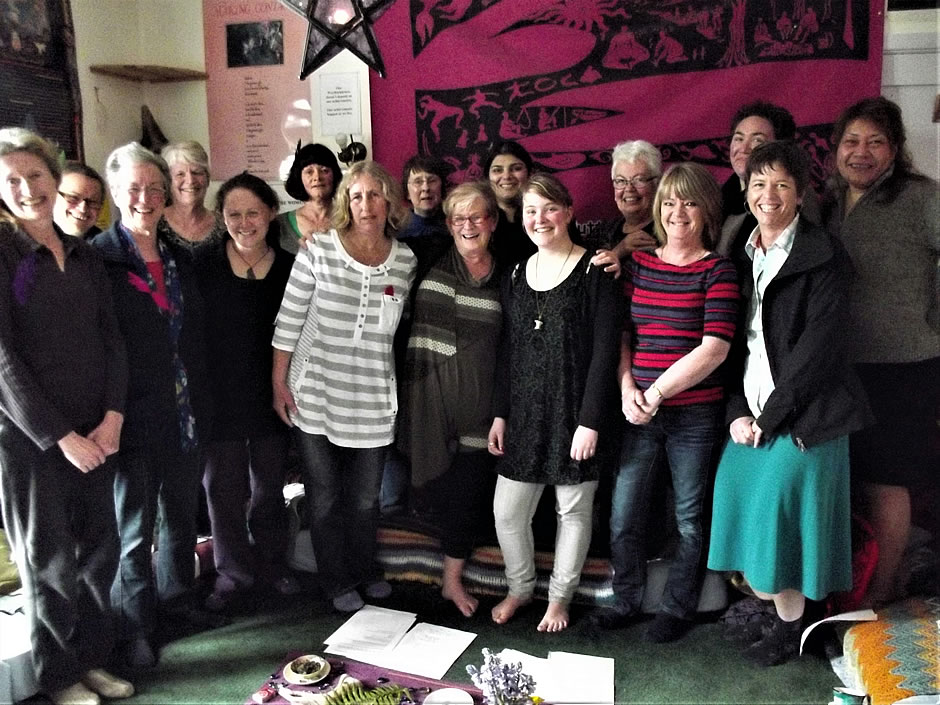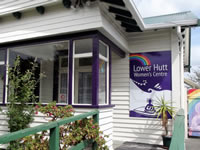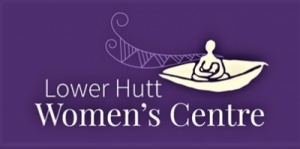In 1986, Lower Hutt City Council, as a response to the United Nations Decade for Women (1975–1985), set up a series of seminars for local women to put forward ideas about what they needed. One of the ideas was a women’s centre, for empowerment, education, ending discrimination and tackling the oppression of women. Similar initiatives were happening at that time in many cities and small towns across Aotearoa New Zealand.
Several feminist women working in Lower Hutt City Council’s community development department were tasked with starting the Lower Hutt Women’s Centre. Many groups gathered to get it underway, including Pacific Mamas Group, YWCA, Lower Hutt Women’s Health Collective, Lower Hutt Women’s Refuge, and Hutt Rape Counselling Network. All these organisations originally set up their offices in the Women’s Centre. Between 1987 and 1993, each of them grew, developed and found their own premises, with all making significant contributions to the Hutt Valley community.
The centre began in a Lower Hutt City Council house in Laings Road. In 1990 the council purchased a house in Knights Road, with the centre having the obligation to buy it over time, on a long-term loan. In conjunction with the YWCA National Office, with generous donations from many women and a loan from Prometheus Ethical Finance, the house was at last fully owned by the centre in 2014.

Lower Hutt Women’s Centre
Staff, volunteers, members and the Board of Trustees attending the Lower Hutt Women's Centre AGM, 2015.
The centre’s purpose or kaupapa was worked on by the establishment committee. The following philosophy was put into the constitution as the guiding purpose in 1990, and remained the central focus from then on:
- We recognise and work in the spirit of Te Tiriti O Waitangi.
- We confront women’s oppression and empower women to take control of their own lives.
- We oppose discrimination by those who have power against those who do not. This includes discrimination against women, especially Maori women, Pacific Islands women, women of colour, lesbians, and those who are differently abled, young, old, working class, and those with different spiritual beliefs.
- We promote a safe and supportive environment for all women and children.
- We promote the sharing of power and resources.
- We act as a resource and information centre for the community. [1]
The centre aimed to provide opportunities for women to empower themselves, by increasing their sense of self-worth and helping them find their own voice. The centre’s approach was focused on these core ideas: that an enhanced sense of connection and belonging helps women to be clear about their life choices and direction, and that everyone's wellbeing and liberation is inextricably tied to everyone else's. Through their work, the centre’s staff and volunteers developed empowering relationships with the women and girls of the community, and gave life to these core ideas. The centre was an inclusive space which created fertile ground for healing within the wider community.

Women involved with the Lower Hutt Women’s Centre in 2018 commented on the difference it had made for them:
Mary: ‘I have discovered I am a decent human being and that makes a difference to how I live my life. It makes a different to my decisions and who I hang out with and how I look after myself.’
Julie: ‘I grow bit by bit – just like the mosaic. It is hard but if I hadn’t started I wouldn’t be here. My boy is so important and I want to keep him, and be a good mum. That’s what I’m going for.’
Jennifer: ‘I will be less “nice” and more real – I will listen to me, I will choose how I want to act rather than “react”, without conscious awareness.’
From 1987 on, the centre was involved in political campaigns and protests, including End of the Welfare State, 1991–1993; many Women against Pornography protests; Lesbian and Gay Liberation; the Seabed and Foreshore Hikoi (Wellington, 2004); and many Reclaim the Night Marches.
Once the centre began to get government contracts, it was decided to focus on fundamentals of empowerment, based around what could be done with the time, income and resources available. This work was based on courses, workshops and counselling. The centre also worked with many groups, including DPB Action and Poverty Action, to provide workshops, support and information for women.
From the outset, the centre regarded itself as a feminist centre working to feminist principles. It provided a large range of courses, workshops and other activities, including Rape Survivors Legal Guide, self defence, anti-racism workshops, making submissions to government, free legal advice, and providing massage therapists and computer tutors. It also ran women’s dances, women walking (tramping) groups, art programmes, weaving, singing, and a very large range of workshops for other community groups.
For 2019, it was running groups for self-esteem, assertiveness, anger, resilience, meditation, understanding the blues, parenting, and a range of therapeutic workshops on topics such as co-dependency, inner child, and self-development. It offered support groups around drug and alcohol problems and sexual abuse. The centre also provided counselling, social work, support, information and drop-in space. All this and more was provided in a comfortable, safe and empowering environment, where cultural diversity was respected.
The centre continued to be a safe place for women and children. Its model specifically focused on human rights, in particular the human rights of women and girls. In 2019 its staff included a manager, counsellors, a social worker and several group workers, along with many volunteers. A board of trustees provided governance; He Huarahi o te Wāhine, the Māori Focus Group, provided resources and bicultural knowledge, and focused on providing services to suit Māori women.
Many women over many years contributed to the centre, as volunteers, paid workers, members on the board of trustees, occasional and long-term donors. All the women coming to the centre brought their own energy and life, sharing these with the energy and life of other women, and thus continually giving life to the Lower Hutt Women’s Centre.
Notes
[1] Lower Hutt Women’s Centre Constitution, 1990.
Published sources
Bindon, Pamela, Lower Hutt Women’s Centre 1987–1997 [pamphlet], LHWC, 1998
Further sources
Lower Hutt Women’s Centre website: www.lhwc.org.nz


Community contributions